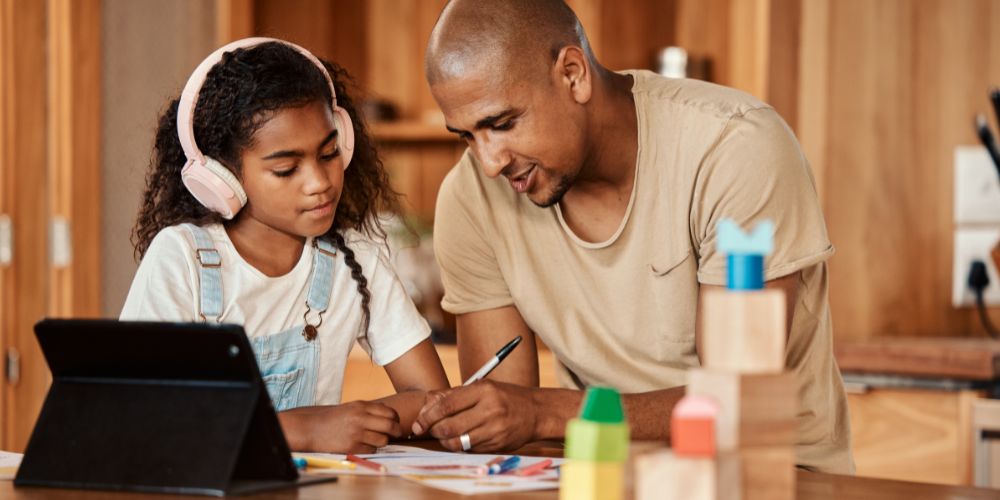Types of Resources Available to Foster Parents
Foster parenting is full of love, but it also comes with challenges. You’re opening your home and heart to a child who needs stability and care—and sometimes, you’ll need a little help. The good news is, help is out there! From financial aid to daycare, therapy, and foster parent support groups, many resources exist to help you thrive as a foster parent.
This guide Here’s a quick guide to the most common types of support:
Financial Help
Foster parents usually receive a monthly payment, called a stipend to help with food, clothing, school supplies, and other essentials. In some areas, additional funds may be available for birthdays, holidays, or special needs.
State Vs. National Assistance
Each state offers its own programs—from specialized care payments to kinship support. Check with your local child welfare office to learn what’s available in your area.
Find your state and local office HERE.
Nationally, foster families may also qualify for:
- Medicaid: Covers medical, dental, vision, and mental health services.
- WIC: For children under five; helps cover formula, baby food, and groceries. Apply through your state’s WIC agency.
- SNAP: Assists with food costs.Learn more about SNAP here.
These federal programs work alongside state and local services to make sure foster children get the care they need.
Child Care and Daycare
Many states offer child care vouchers to help cover daycare or after-school programs. This lets foster parents work or attend to responsibilities while ensuring children are safe and cared for. Contact your state’s Department of Social Services to learn more.
Respite Care
Respite care gives foster families a break by allowing another licensed caregiver to watch the child temporarily—whether for a few hours or a weekend. This helps reduce burnout and offers valuable time for self-care or emergencies.
READ MORE: A Simple Guide to Respite Foster Care
Therapy and Mental Health Services
Parenting is stressful. Many foster parents benefit from therapy programs that help with trauma, stress management, and family dynamics. They can also connect you with community support and connect you to a network of foster parents who all support one another.
Medicaid often covers individual, family, or group therapy. You can also ask your caseworker/placement agency, call your or contact your local behavioral health department.
Find therapists near you at SAMHSA.gov.
To find mental health services in your area, you can:
- Contact your foster care caseworker or placement agency
- Call your county or state behavioral health department
- Use the federal SAMHSA Treatment Locator to find nearby therapists and mental health centers: Find a Treatment Center –
Foster Parent Support Groups and Mentoring
Foster parent support groups offer a space where caregivers can share experiences, ask questions, and learn from others. These groups may meet in person at local agencies or churches, or online through forums and video calls.
Many foster parents say support groups help them feel less alone. They provide emotional encouragement and practical advice from people who understand.
To find a group near you, start by asking your foster care agency or licensing worker if they know of any local options.
Donations and Physical Resources
Many agencies connect foster parents with basic supplies like clothing, diapers, bedding, school supplies, and more. Some areas have foster care closets or donation centers where families can pick up what they need at no cost. These resources help relieve financial pressure and ensure children have what they need to feel safe and comfortable.
At Foster Love, we offer Shopping Sprees, which provide new clothing for foster youth, as well as other donations. Our volunteers help organize care packages filled with snacks, books, toys, diapers, and more for our community. You can apply for these resources HERE.
More Ways to Get Help
Some other support services may include:
- Parenting classes and training focused on trauma-informed care, child development, and navigating the educational system
- Support for kinship caregivers
- Discounts for events, classes, and outings
Foster Love is Here to Help!
Foster Love offers programs that directly support both foster youth and the families who care for them. Our goal is to make sure kids have what they need to thrive—and that foster parents feel empowered, not alone.
Some of the ways we support children and families include:
- Shopping Sprees: We provide opportunities for youth to pick out brand-new clothes—helping them feel confident, included, and proud of their appearance.
- Disney Days: We reunite siblings separated in foster care for a full day of fun and memories at Disneyland—because staying connected to family matters.
- Superhero Boxes: Filled with essentials and comfort items like blankets, socks, hygiene kits, and pillowcases with empowering messages to help children feel cared for during tough transitions.
- Birthday Celebrations: We help make birthdays special for foster kids, ensuring they feel celebrated no matter their living situation.
- Volunteer-Led Service Projects: From assembling bikes to hosting holiday events, our volunteers show kids that their community cares.
If you’re a foster parent or caregiver, you’re not alone. We’re here to help support you—so you can continue showing up for the kids who need you most.



